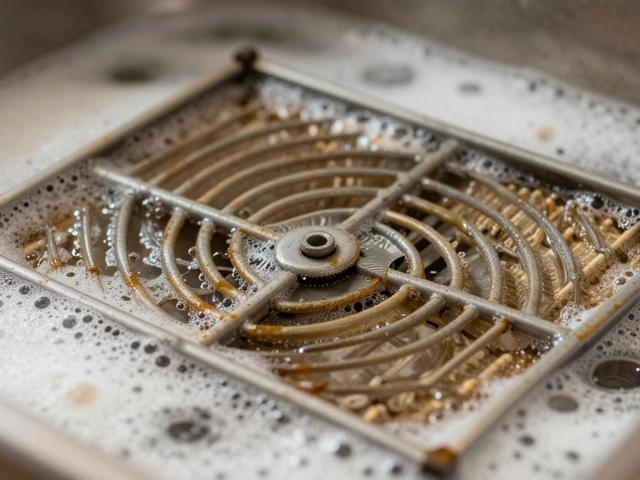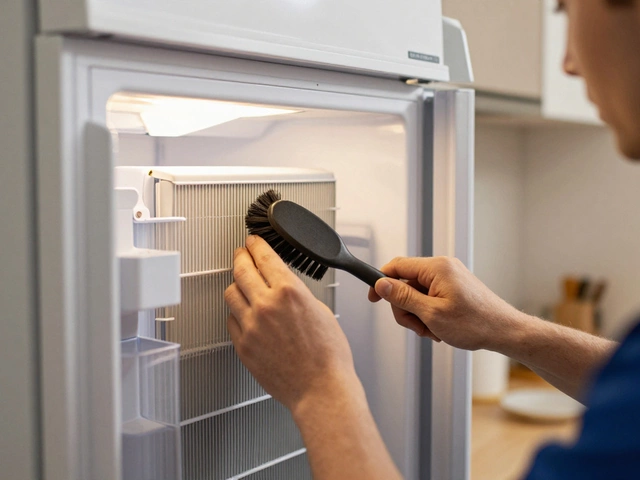Refrigerator Issues: What Causes Problems and How to Fix Them
When dealing with refrigerator issues, any malfunction that stops your fridge from keeping food fresh. Also known as fridge problems, these setbacks can range from temperature spikes to noisy compressors. Understanding the root causes saves time, money, and the hassle of a spoiled grocery run.
Another core entity in this space is the Refrigerator, the main appliance that stores and cools perishable items. Closely linked is the Freezer, the compartment that maintains sub‑zero temperatures for frozen goods. When the freezer starts to frost or fails to freeze, it directly impacts the overall cooling efficiency of the refrigerator. A malfunctioning Ice Maker, the built‑in system that produces ice cubes often signals a water line issue or a faulty sensor, which can also affect the fridge's performance. Finally, Appliance Repair, the professional service that diagnoses and fixes home appliances ties all these components together, ensuring safe and lasting solutions.
Common Causes and Fixes
One frequent refrigerator issue is inadequate cooling. This usually points to a dirty condenser coil, a blocked fan, or low refrigerant levels. Cleaning the coils every six months is a simple DIY step that restores airflow and cuts energy waste. If the fan hums but the fridge stays warm, the motor may need replacement—a task best left to a qualified technician.
Temperature fluctuations often stem from a faulty thermostat. The thermostat controls the compressor cycle, and when it misreads the internal temperature, it can over‑cool or under‑cool. Swapping out a thermostat is a low‑cost repair, but ensure the new part matches your model’s specifications. Another culprit is the door seal; a cracked gasket lets warm air in, forcing the compressor to run harder. Wiping the seal with mild soap and checking for gaps can prevent this issue.
Freezer‑related problems show up as ice buildup or failure to freeze. Excess frost usually means the defrost timer or heater is malfunctioning. Resetting the timer or replacing the heater can stop the cycle from freezing over. On the flip side, a freezer that never gets cold might have a sealed‑system leak. In that case, a professional must evacuate and recharge the system, as DIY attempts can damage the compressor.
Ice maker woes are another slice of the refrigerator puzzle. If you notice no ice or uneven cubes, start by checking the water inlet valve for clogs. A low water pressure or frozen valve can halt ice production. Once the valve is clear, verify the ice mold thermostat and the motor; these parts often wear out after years of use. Replacing a faulty motor restores smooth operation.
Noise complaints range from rattling shelves to a buzzing compressor. Rattles usually mean items are not secured or the levelers need adjustment. A buzzing sound often indicates the compressor is working hard due to low refrigerant or a failing start relay. While tightening shelves is a quick fix, a start relay replacement requires a bit of electrical knowledge—if you’re unsure, call an Appliance Repair specialist.
Beyond the hardware, power issues can trigger a cascade of problems. A fridge that cycles on and off may be on an overloaded circuit or suffer from voltage fluctuations. Using a dedicated outlet or a surge protector helps stabilize the power supply. If the fridge still misbehaves, a professional can test the compressor’s electrical components for hidden faults.
Understanding these connections—how a dirty coil leads to higher energy bills, how a bad door seal forces the compressor to overwork, and how freezer performance feeds back into overall cooling—helps you prioritize what to check first. Armed with this knowledge, you’ll know when a simple clean‑up will do the trick and when it’s time to call in Appliance Repair experts.
Below you’ll find a curated collection of articles that dig deeper into each of these topics, from step‑by‑step diagnostics to cost‑effective repair strategies. Whether you’re a DIY enthusiast or just want to understand what’s going on behind the fridge door, these posts provide the practical insight you need to keep your kitchen running smoothly.
Discover the tell-tale signs that indicate your refrigerator is malfunctioning and how to address these issues. From weird noises to spoiled food, recognizing the problems early can save you from costly repairs. Learn practical tips and tricks for maintaining your fridge's health, ensuring it keeps your food fresh. This article simplifies the complex world of fridge maintenance, making it accessible to everyone.


